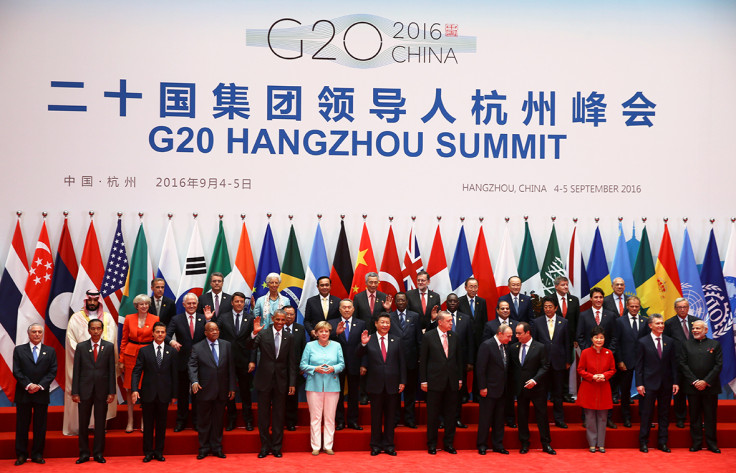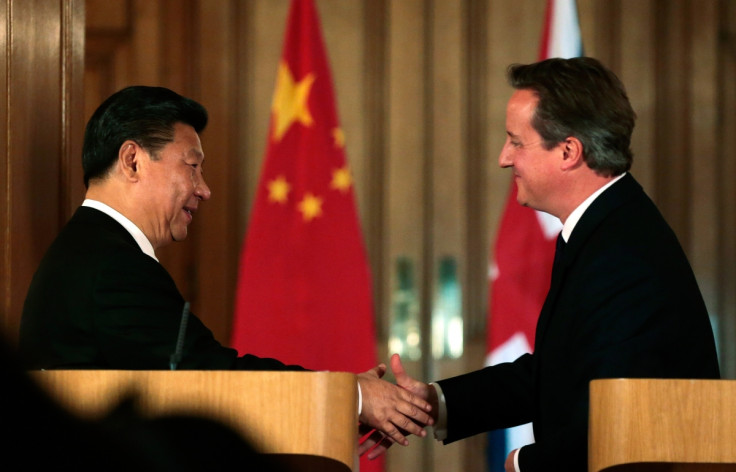China is looking for new friends after US and Australia fallout – could Britain fill the void?
Theresa May will look to imitate David Cameron's close relationship with Xi Jinping.

When Barack Obama strolled down the metal rear-door staircase of Air Force One on arrival in China on Saturday (September 3 2016), rumours quickly spread that Beijing had deliberately snubbed the US president on his final international summit as head of state.
Every other world leader arriving in Hangzhou had been greeted with a red-carpeted staircase rolled on to the tarmac by Chinese airport staff, and US media speculated that Obama's less-than-glamorous embarkation could be linked to the strained relationship between Washington and Beijing.
China has since announced that the 'snub' was nothing of the sort, pointing out that it was the US that opted not to use the movable staircase because of translation issues with the driver, who didn't speak English. But the speculation has not only highlighted the tense relations between the US and China over trade and the South China Sea, but how protocol can give an insight into Beijing's thinking.
It is little surprise then that British Prime Minister Theresa May's relegation to the second row, far left, in the official photographs from the summit in Hangzhou has prompted speculation that the UK is not flavour of the month in Beijing. May has announced a review into the £18bn (€21.5bn, $24bn) Hinckley Point nuclear contract with EDF and China's CGN Group, which was considered a done deal in Beijing.
"I think people are over-reacting about the 'snub' of America, that was a security issue, but when it comes to the UK that is significant," said Shaun Rein, managing director of the China Market Research Group (CMR). "It is saying that the UK is becoming more of a minor partner."
But Rein added that the so-called 'snub' should not been seen as China moving away from the UK. If anything, Beijing is looking for a partner to replace the US in the face of increasingly strained relations with Washington as well as other allies such as Australia, where a hawkish administration has become increasingly hostile to China, its largest trading partner.

Australia recently knocked back a major investment deal with Chinese companies for a 50.4% stake in Ausgrid, the company that operates the electricity grid in New South Wales. Just a few weeks earlier, Australia's treasurer, Scott Morrison, rebuffed a Chinese bid for a major Australian cattle station. Chinese state media said the decision was leading to a "toxic mindset of China-phobia".
And then there is the ongoing spat in the South China Sea, over which China has accused Australia, the US and Japan of "fanning the flames" of regional tensions. The spat even reared its head at the Rio Olympics, after Australian gold medallist Mack Horton referred to Chinese swimmer Sun Yang as a drugs cheat. Chinese state media retorted that Australia was a former "offshore prison".
May's relegation to the second row of an official photograph may seem tame by comparison, but at a time when Britain could be seen as lurching towards isolationism post-Brexit, Rein advises caution. He believes that while Hinkley Point is important, it is not deal-breaker - China always plays the long game when it comes to foreign policy – but Britain should act now if it wants to be close to Beijing.
"Australia has made mistakes in blocking investment by Chinese companies. It would be a mistake for the UK to follow. China is looking for a Western power to be close to," he said.
Speaking before she left Heathrow, May tried to channel the love-in between David Cameron and Chinese leader Xi Jinping earlier this year, when the latter used a Chinese proverb to sum up UK-China relations ("A mountain can never be too high or an ocean too deep.") and shared a pint with Cameron. "This is a golden era for UK-China relations," she said.
© Copyright IBTimes 2025. All rights reserved.






















